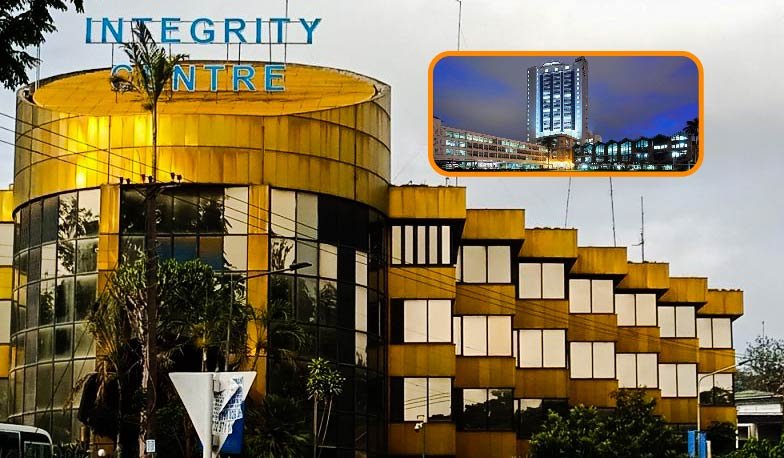Securing capital remains a crucial hurdle for small businesses across Africa. This article sheds light on various funding options available in 2024, from traditional loans to digital platforms, and offers practical advice to help entrepreneurs thrive.
For many African entrepreneurs, starting and growing a business feels like navigating a labyrinth—one where capital often holds the key to the next level of success. As we step into 2024, finding the right funding option remains one of the biggest challenges for small businesses. But the landscape is changing, and new opportunities are emerging. With the right knowledge, African entrepreneurs can unlock these doors and fuel their dreams.
Here’s a look at the most prominent funding options available in 2024.
- Traditional Bank Loans: The Oldest Route
Bank loans are the cornerstone of business funding, offering stability but requiring a strong foundation. Think of it as climbing a mountain—bankers expect detailed financials, a solid business plan, and, in many cases, collateral to secure the loan.
What to Expect:
Interest Rates: These vary widely depending on creditworthiness and loan type.
Loan Terms: Typically range between 1 to 5 years. While terms can be flexible, there are penalties for early repayment.
Tip: Build a relationship with your bank early, even before you need funding. This trust can boost your chances of approval.
- Microfinance Institutions: A Lifeline for Many
Microfinance institutions. (MFIs) are the silent heroes in the African business scene. For entrepreneurs in rural areas or those without access to traditional banks, MFIs are like bridges over troubled waters.
What to Expect:
Eligibility: Lower requirements than banks, but may involve group guarantees.
Loan Amounts: Modest, but perfect for covering initial costs or adding working capital.
An example is Faulu Kenya, a microfinance institution known for supporting women entrepreneurs in rural areas.
- Angel Investors and Venture Capital: Betting on Big Ideas
If your business is a rocket ready for launch, angel investors and venture capital (VC) firms might provide the fuel you need. They seek businesses with massive growth potential and are willing to trade capital for equity.
What to Expect:
Equity Stake: They’ll own a portion of your business and may have influence over decisions.
Growth Expectations: High-growth potential is key. They want to see a return on their investment—fast.
The Lagos Angel Network in Nigeria has been instrumental in fueling early-stage tech startups, offering not just funds but mentorship and valuable connections.

- Crowdfunding: Rallying the Masses
Imagine raising capital with the power of community. Crowdfunding platforms like Kickstarter and Kenya’s M-Changa allow entrepreneurs to raise funds from everyday people in exchange for early products or rewards. It’s like building your own fan club—where each supporter contributes to your success.
What to Expect:
Campaign Strategy: Success requires a compelling story and aggressive marketing.
Flexibility: You retain full ownership, but remember, promises made to backers must be kept.
- Government Grants and Support: Fueling Growth with No Strings Attached
Government grants are like gold for African businesses—they don’t need to be repaid. However, these treasures come with fierce competition and specific eligibility criteria. Many grants focus on sectors like agriculture, tech, or green energy.
What to Expect:
Non-Repayable Funding: But strict reporting is required to ensure funds are used wisely.
Eligibility: Businesses contributing to job creation, innovation, or economic development stand a better chance.
South Africa’s Small Enterprise Development Agency (SEDA) is one example, offering financial and non-financial support to businesses.
- Digital Lending Platforms: The Fast Lane to Cash
In 2024, the digital age is taking hold of lending. Platforms like Tala and Branch have transformed how small businesses access funds. These services offer loans based on alternative credit scoring models, using data from mobile money transactions and social media to assess creditworthiness.
What to Expect:
Quick Access to Funds: Loans can be approved within hours, but be cautious—the interest rates are often higher than traditional loans.
Short-Term Loans: Ideal for quick working capital, not long-term financing.
- Diaspora Financing: Support from Afar
For African entrepreneurs, the diaspora has become a lifeline. Remittances from family abroad or diaspora-focused investment platforms provide a growing source of capital. It’s like having a safety net spanning continents.
What to Expect:
Remittances: Often used by entrepreneurs to fuel their ventures.
Diaspora Investment Platforms: Sites like Homestrings enable Africans abroad to invest in local businesses.
In Ghana, remittances have played a significant role in funding local businesses, with families abroad sending support to nurture ventures back home.
The funding landscape for African entrepreneurs in 2024 offers more choices than ever before, from the traditional stability of bank loans to the innovative digital lending platforms reshaping finance. But the key to unlocking these opportunities lies in understanding each option’s nuances and picking the right one for your business.






You must be logged in to post a comment.